
PART 1 OF 2
THE CURE: KISS ME, KISS ME, KISS ME: A CELEBRATION
PART ONE: THE NIGHT (MOON) SONGS
Richard Jonathan
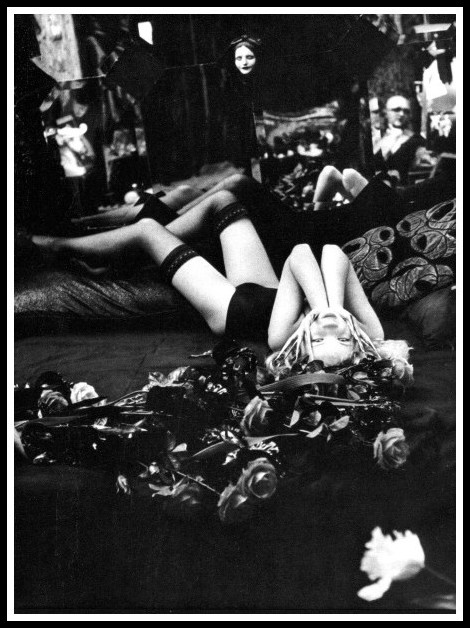
Photo: Irina Ionesco
INTRODUCTION
Like many a Cure fan, I have a particular affection for Kiss Me, Kiss Me, Kiss Me. It reaches far and ranges wide, holding one spellbound in its darkness and enchanted in its light. How to honour the music? Some make videos, others write poems; some engage in musicology, others goth up and get down. As for me, I offer this celebration, a refraction of Kiss Me, Kiss Me, Kiss Me through a variety of images as well as through extracts from my novel Mara, Marietta: A Love Story in 77 Bedrooms (and, occasionally, other texts). It is my fervent desire that you enjoy the adventure; the comment box below awaits a trace of your experience. Are you ready? Let’s go!
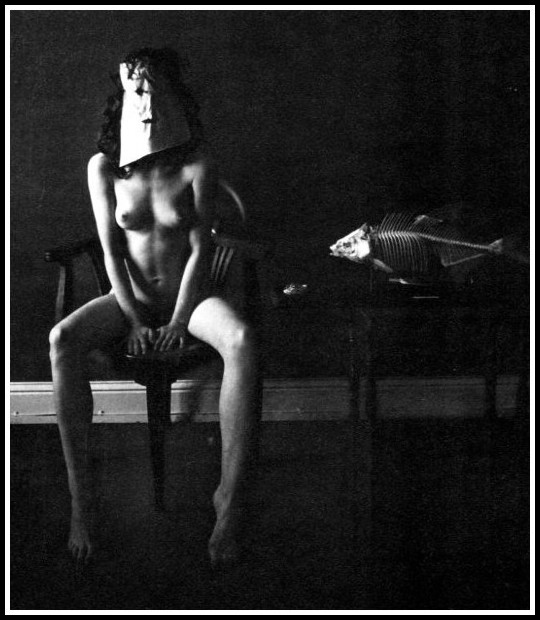
Photo: Karin Szekessy
THE KISS
Oh, kiss me, kiss me, kiss me
Your tongue’s like poison
So swollen it fills up my mouth
Just love me, love me, love me
You nail me to the floor
And push my guts all inside out
Just get it out, get it out, get it out
Get your fucking voice
Out of my head
I never wanted this
I never wanted any of this
I wish you were dead
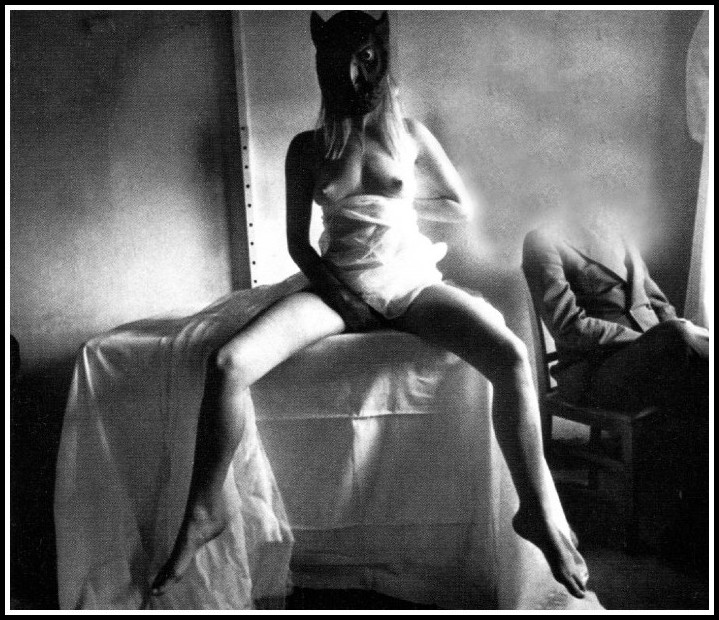
Photo : Karin Szekessy
Entrusting to your body the care of your soul, you throw your head over the edge of the bed. Waxen in the moonlight, your throat stretches taut over the cartilage, making visible the pulse of blood in the vein. Mara Marina, Mara Miranda, shall I be a phantom of violation, barred by no boundary? Cold, my lips warm on your throat. Look! In the mirror you lie: of me there’s no sign. Rivulets of blood flow down your flesh; time drowns in your dreaming stare. Ice-blue, your eyes chill the moonlight; snow-white, your skin brightens the blood. Moved and unmoving, your head over the edge of the bed, you give your body up to me: As love is traced by death, it traces the space between identities.
From Richard Jonathan, Mara, Marietta: A Love Story in 77 Bedrooms
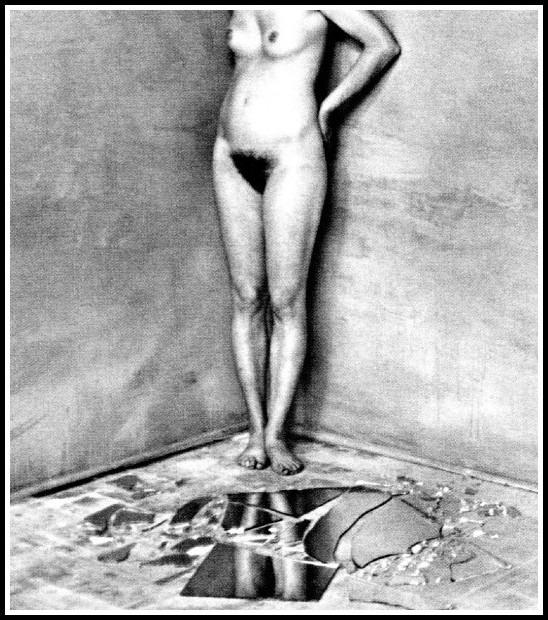
Photo: Jo Alison Feiler
THE VAMPIRE & EROS
Adapted from Christopher Craft, ‘‘Kiss Me with those Red Lips’: Gender and Inversion in Bram Stoker’s Dracula’ (Representations, No. 8 Autumn 1984, pp. 107-133)
The vampire is prone to be fascinated with an engrossing vehemence resembling the passion of love; vampiric pleasure is heightened by the gradual approaches of an artful courtship: this analogy between monstrosity and sexual desire is paradigmatic in readings of vampirism. Modern critical accounts of Dracula almost universally agree that vampirism both expresses and distorts an originally sexual energy. That distortion, the representation of desire under the defensive mask of monstrosity, the identity of desire and fear in vampirism, betrays a fundamental psychological ambivalence. This interfusion of sexual desire and the fear that the moment of erotic fulfillment may occasion the erasure of the conventional and integral self informs both the central action in Dracula and the surcharged emotion of the characters about to be kissed by ‘those red lips’. So powerful an ambivalence, generating both errant erotic impulses and compensatory anxieties, demands a strict, indeed an almost schematic formal management of narrative material. In Dracula Stoker borrows from Mary Shelley’s Frankenstein and Robert Louis Stevenson’s Dr. Jekyll and Mr. Hyde a narrative strategy characterized by a predictable, if variable, triple rhythm. Each of these texts first invites or admits a monster, then entertains and is entertained by monstrosity for some extended duration, until in its closing pages it expels or repudiates the monster and all the disruption that he/she/it brings.
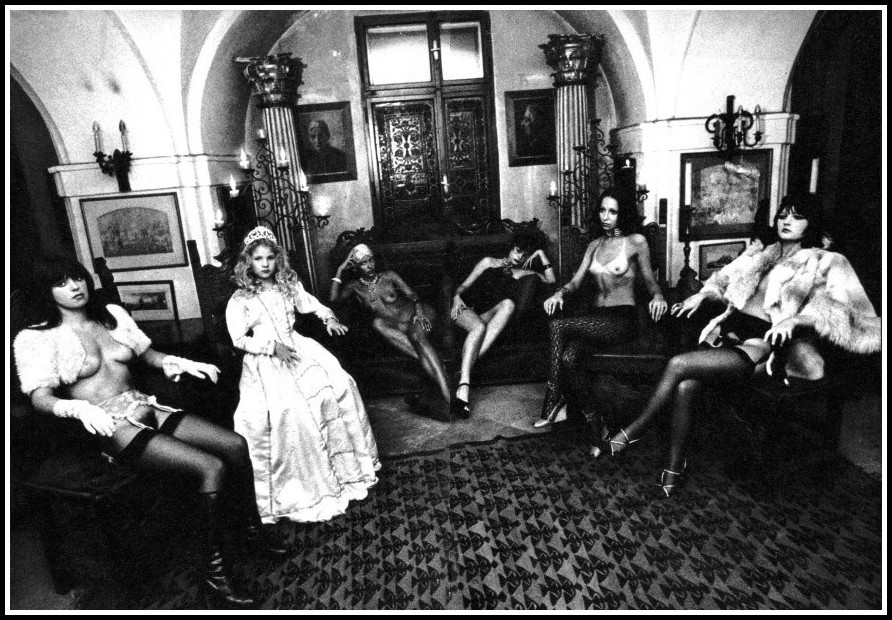
Photo: Irina Ionesco
TORTURE
I’m in the room without a light
The room without a view
I’m here for one more treacherous night
Another night with you
It tortures me to move my hands
To try to move at all
And pull my skin so tight it screams
And screams and screams and pulls some more
Hanging like this
Like a vampire bat
Hanging like this
Hanging on your back
I’m hopeless and helpless again, I’m helpless again
My body is cut and broken
It’s shattered and sore
My body is cut wide open
I can’t stand anymore
Oh it’s torture
And I’m almost there
It’s torture
But I’m almost there
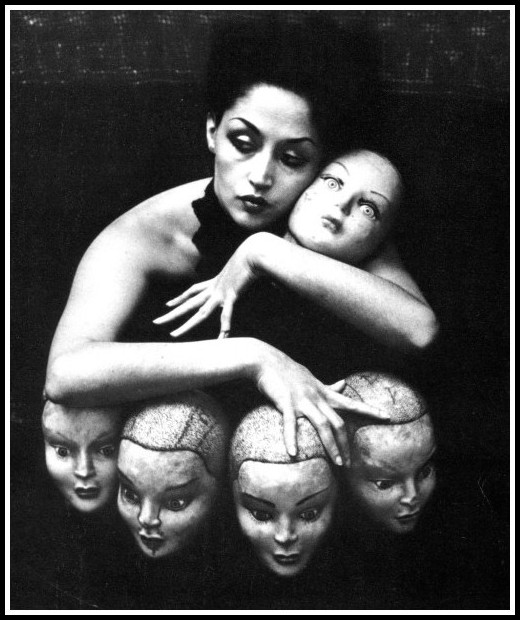
Photo: Irina Ionesco
Red tongues loll in open mouths, cupped ears dwarf pendant heads: Suspended from the cavern vault, a throng of pug-faced bats. In glossy folds black wings multiply, in the cavernous gloom the creatures hang. With the claws of one foot while hanging by the other, some comb their fur to a brighter gloss; with meticulous lips and tongue, others oil their wing membranes.
̶ Oh bats, you who navigate the night—can you help me?
̶ What is it you are seeking?
̶ A way to say ‘I love you’ without reducing my beloved to an object.
̶ So, you want to get your letter right?
Out of the millions, one speaks at a time.
̶ Yes. Can you help me? I’ll give you—
̶ A poem?
̶ No. A little prose piece, an extract from my letter.
̶ Well, well, what do you know? That’s exactly what we’re looking for!
̶ Really? Why?
̶ We work in the Archives. Creatio ex libidine.
̶ Creatio ex libidine?
̶ The department where love letters belong.
̶ Indeed.
̶ So, in return for your prose piece, how to get your letter right?
̶ Yes.
̶ All right. I’ll come down and whisper in your ear. What I have to say—on behalf of myself and all the millions here—must be said softly.
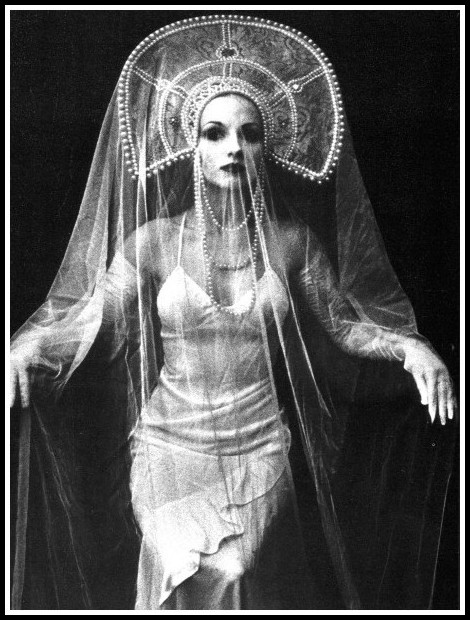
Photo: Irina Ionesco
The bat swoops down and lands on my shoulder. Gripping my collar, he speaks in my ear.
̶ Every human is a placeholder of nothingness. As such, each is that which he is not, and not that which he is. Your beloved, then, must be apprehended in the emptiness her movement produces. If not, you make her incapable of her own incapacity.
̶ The way Brancusi captures the essence of a bird in flight?
̶ Exactly. The sculptures of Brancusi leave nothing but their luminosity, as a bird in flight leaves nothing but a memory of its movement.
̶ I will try, bat, I will try for the capability of incapacity. I will try to get my letter right.
̶ Good. But it won’t get you anywhere.
̶ What? You mean there’s no—
̶ None. You will always be ambushed by the blind spot of language.
From Richard Jonathan, Mara, Marietta: A Love Story in 77 Bedrooms
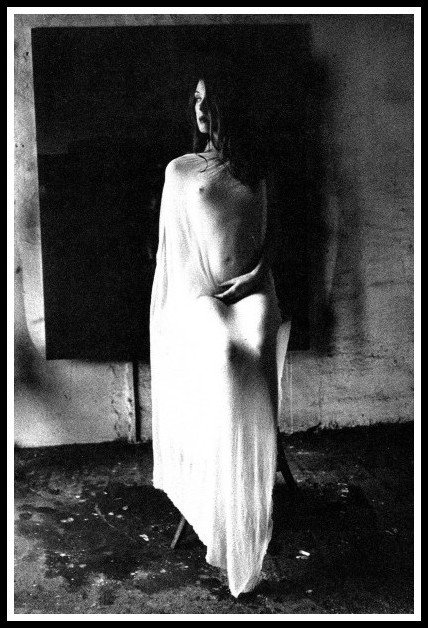
Photo: Karin Szekessy
IF ONLY TONIGHT WE COULD SLEEP
If only tonight we could sleep
In a bed made of flowers
If only tonight we could fall
In a deathless spell
If only tonight we could slide
Into deep black water
And breathe, and breathe
Then an angel would come
With burning eyes like stars
And bury us deep
In his velvet arms
And the rain would cry
As our faces slipped away
And the rain would cry
Don’t let it end, don’t let it end
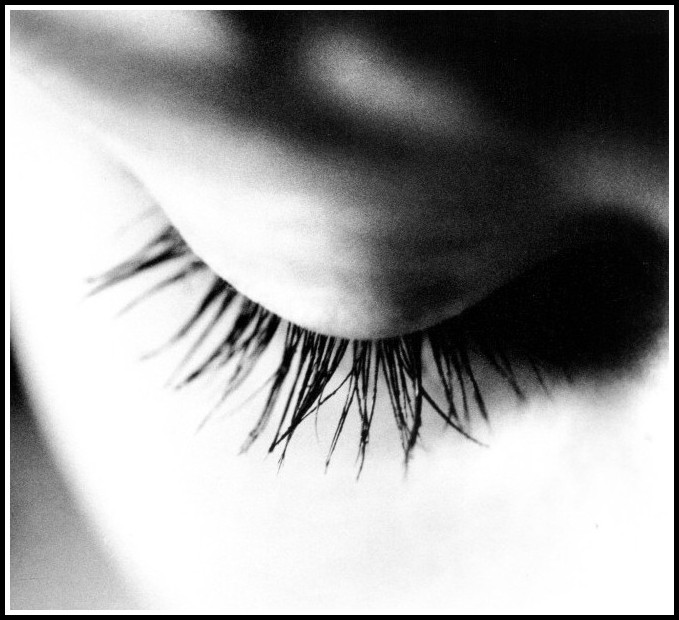
Photo: Dominique Issermann
Insidiously the tide tugs at my blood, insidiously the siren sings. The siren! Plug my ears with beeswax, keep her indistinct! Swiftly I recite the twelve times table: Before seven her eyes have turned amber, her windblown hair blonde. Desperately I run through the Russian alphabet: Before ‘и’ sensitivity emanates from her fingers, immediacy from her lips. The order of the planets from the sun, the order of the visible spectrum—her laughter rings in my ears, her smile melts my heart… And thus you draw me to you, my beloved mermaid; and thus your silence is as fatal as your song. Marietta, as the murmur of the sea makes a boat of my bed, a moonbeam a sail of the baldaquin, I know that tonight I will be stalled in horse latitudes, haunted by memories of you…
From Richard Jonathan, Mara, Marietta: A Love Story in 77 Bedrooms
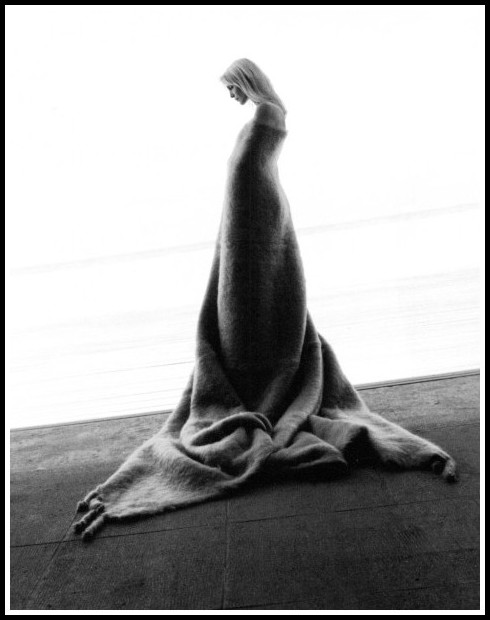
Photo: Dominique Issermann
HOW BEAUTIFUL YOU ARE
You want to know why I hate you
Well I’ll try and explain
You remember that day in Paris
When we wandered through the rain
And promised to each other
That we’d always think the same
And dreamed that dream
To be two souls as one
Stopped just as the sun set
And waited for the night
Outside a glittering building
Of glittering glass and burning light
And in the road before us
Stood a weary grayish man
Who held a child upon his back
A small boy by the hand
The three of them were dressed in rags
And thinner than air
And all six eyes stared fixedly on you
The father’s eyes said: ‘Beautiful,
How beautiful you are’
The boy’s eyes said: ‘How beautiful,
She shimmers like a star!’
The child’s eyes uttered nothing
But a mute and utter joy
And filled my heart with shame for us
At the way we are, at the way we are
I turned to look at you
To read my thoughts upon your face
And gazed so deep into your eyes
So beautiful and strange
Until you spoke
And showed me understanding is a dream:
‘I hate these people staring
Make them go away from me’
The father’s eyes said ‘Beautiful,
How beautiful you are!’
The boy’s eyes said: ‘How beautiful,
She glitters like a star!’
The child’s eyes uttered nothing
But a quiet and utter joy
Instilled my heart with sadness
At the way we are, at the way we are
And this is why I hate you
And how I understand
That no-one ever knows or loves another
Or loves another
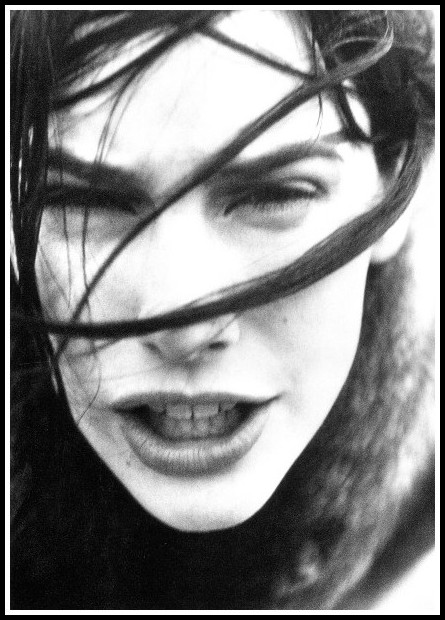
Photo: Dominique Issermann
At the foot of a hill she sits in grass, eating clover. Her forearm bears a bandage: Fleeing in a field, having slithered out from her hiding place in a hayloft, she owes her life to the drunkenness of the Partisan who fired the bullet. A woman washed her wounds with spirit and soothed them with ointment. She’s lost her mind, the woman thought, when she heard her story. She believed it when she heard the Partisans had seized a man from his home, locked the rest of the family in the cellar, and set the house on fire. She believed it when she heard about her neighbour who hung herself because, hiding in the loft of her house, she had not come down when the Partisans were killing her mother, father, and brother below. But she couldn’t believe your father’s mother’s story. Are not five sparrows sold for two farthings, and not one of them is forgotten by God? He wouldn’t let it happen! The push of speech as your father’s mother gives the facts confirms the woman in her verdict: This woman is mad. A pair of shoes, bread, apples, pears, nuts: These she gives her as your father’s mother leaves the house before daybreak. Her stride is the stride of her husband, the pith of bread on her tongue is the morsel she feeds her son. And then she thinks of God. I have eaten ashes like bread, and mingled my drink with weeping; by reason of the voice of my groaning, my bones cleave to my skin. Because I was not cut off before the darkness, neither hath He covered the darkness from my face. It is time to seal up the stars forever: And I only am escaped alone to tell thee.
From Richard Jonathan, Mara, Marietta: A Love Story in 77 Bedrooms
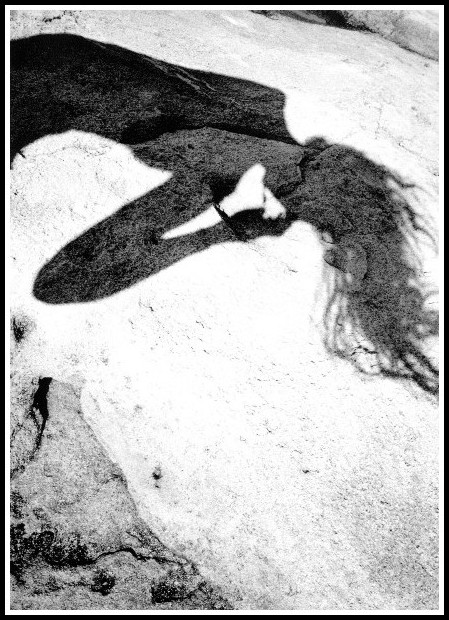
Photo: Dominique Issermann
ROBERT SMITH & CHARLES BAUDELAIRE
Charles Baudelaire, ‘The Eyes of the Poor’ Paris Spleen XXVI. Tr. John E. Tidball
Ah, so you want to know why I hate you today. It will doubtless be harder for you to understand than for me to explain; for you are, I believe, the finest example of female intransigence that anyone could meet.
We had spent a long day together that to me had seemed short. We had promised one another that all our thoughts would be shared between the two of us, and that our two souls would henceforth become one; —a dream that is after all in no way original except that, though dreamed of by all men, no one has ever attained it.
That evening, feeling a little tired, you wanted to stop at a new café on the corner of a new boulevard that was still piled high with rubble but already gloriously displayed its unfinished splendour. The café was ablaze. The gaslight burned with all the fervour of a premiere, casting its dazzling light on the whiteness of the walls, the resplendent array of mirrors, the gold of the ornaments and cornices, the plump-cheeked page-boys pulled along by dogs on leashes, the laughing ladies with falcons perched on their wrists, the nymphs and goddesses carrying fruits, pâtés and wildfowl on their heads, the Hebes and the Ganymedes proffering little jars of crème parfait or a colourful obelisk of assorted sorbets; all of history and mythology pandering to gluttony.
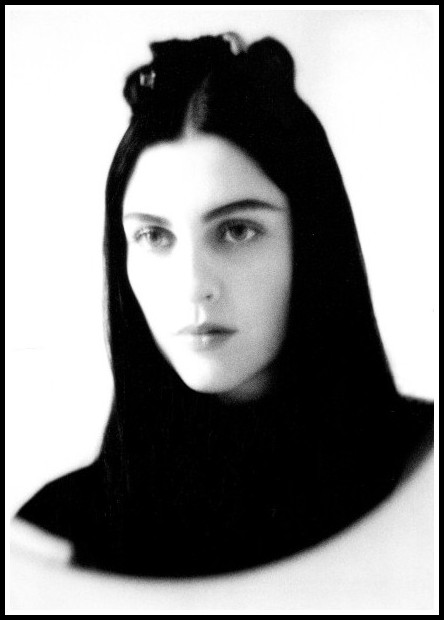
Photo: Dominique Issermann
Directly in front of us, in the street, stood a fellow of about forty, with a wearied expression and a greying beard, holding a little boy by the hand and carrying in his other arm a tiny child too feeble to walk. He was playing nursemaid, and had brought his children out to take the evening air. All were dressed in rags. Those three faces bore extremely serious expressions, and those six eyes gazed intently at the café in equal wonderment, but nuanced according to their age.
The father’s eyes said: ‘How beautiful it is! How beautiful it is! It’s as if all the gold in our poor world has found its way onto these walls.’ The little boy’s eyes said: ‘How beautiful it is! How beautiful it is! But this is a place where only people who are not like us can go.’ As for the tiny child’s eyes, they were too fascinated to express anything other than a naïve and profound joy.
Songwriters say that pleasure is good for the soul and softens the heart. The song was right that evening, in my case. Not only was I moved by this family of eyes, but I felt a little ashamed of our glasses and carafes that were so much bigger than our thirst. I turned my gaze toward yours, my love, to read my thoughts there; I plunged my eyes deeply into yours, so beautiful and so strangely soft, into your green eyes, inhabited by Caprice and inspired by the Moon; then you said to me: ‘Those people are insufferable, with their eyes as wide as coach gates! Can’t you ask the head waiter to get them away from here?’
How hard it is to understand one another, my angel. Thought is incommunicable, even between people who love one another!
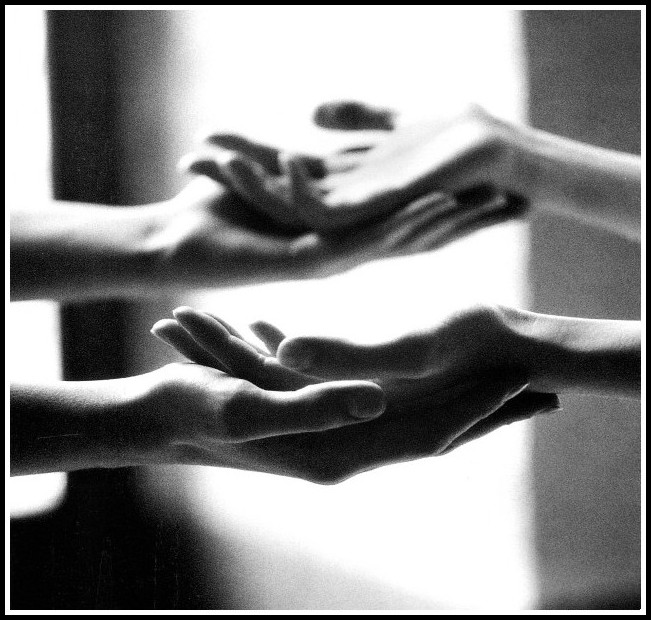
Photo: Dominique Issermann
SNAKEPIT
Well we’re a mile under the ground
And I’m thinking that it’s Christmas
And I’m kissing you hard
Like I’ve got very important business
And no-one knows, and no-one sees us
Because they’re drinking themselves senseless
And I’m writhing, and I’m writhing
And I’m writhing in the snakepit
Well I’m out in a car
And it’s just full of stupid girls
And I’ve forgotten how to speak
And I just can’t remember a word
And my eyes feel like they’re bursting
And they’re splitting like plums
And I’m writhing, and I’m writhing
And I’m writhing in the snakepit
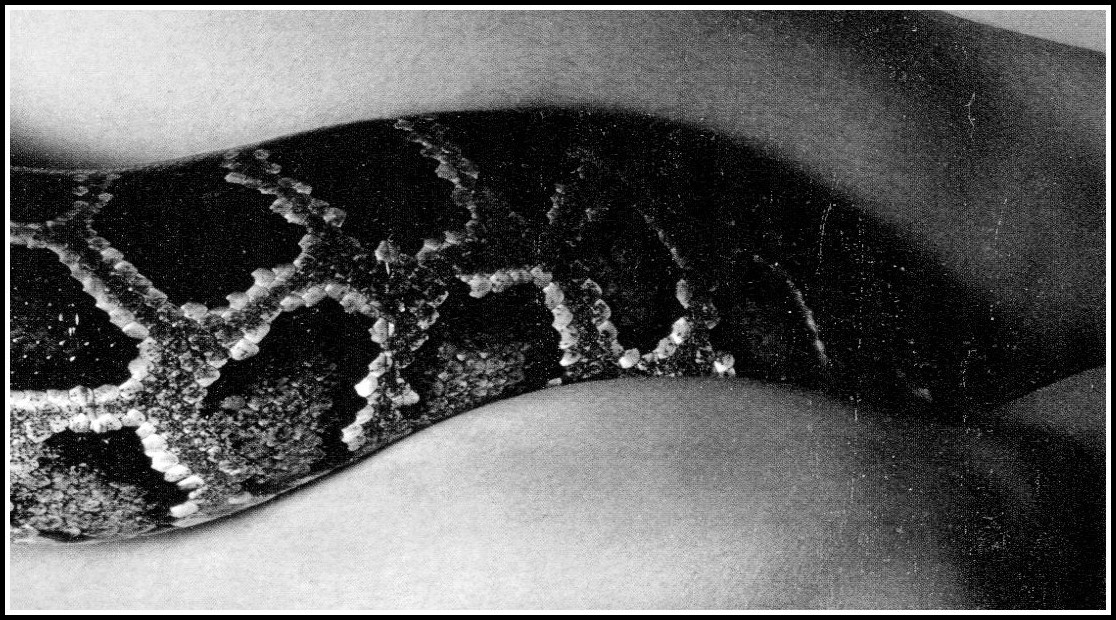
Photo: Richard Avedon (detail), Vogue
Flick! From between your toes a serpent’s tongue rises to flare along the surface of your foot; licking your heel, its black sleekness accentuates your svelte form. Glossed, your toenails glow on the dark leather sole, conspiring with your skin to make the beauty of your sandaled feet despairing. Marietta, as you stand there, an air of sadness in your eyes, do you have any idea that while your whole attitude denies that beauty can signify anything other than itself, your reduction of beauty to pure appearance attracts me in the extreme? Yes, your lack of illusions only heightens your allure: I want to fuck you on the steppes of Siberia, in the forests of Indonesia, in the depths of the Atacama desert! Black and blue I want you, on lava glass, on permafrost, in wetlands and seas of sand. Yes, in the silence above the treeline, in the roar of breaking waves, I want to befoul your beauty; in the canopy of a cloud forest, by an underground river in a cave, I want to sully your sex.
From Richard Jonathan, Mara, Marietta: A Love Story in 77 Bedrooms
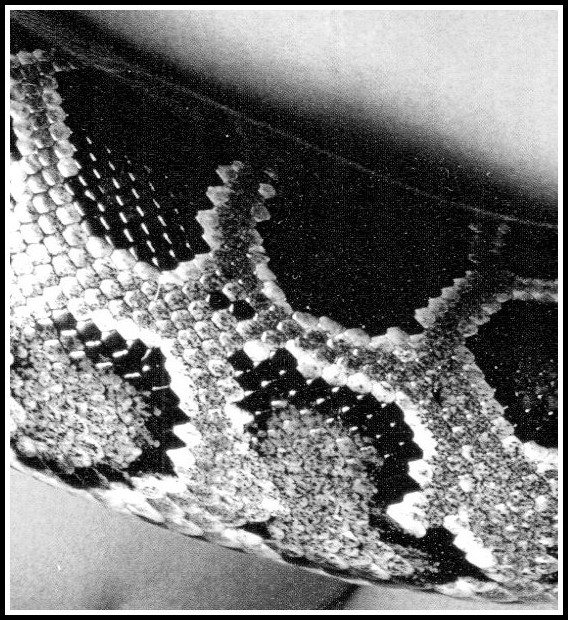
Photo: Richard Avedon (detail), Vogue
What does it take, Marietta, to make you see that the serpent was not outside Eve, but inside? Crack! The braided tails take another turn; as the woman rises onto her toes the pores of her skin open: Tail-lights vein the sleeping city; in the forest, belladonna blooms. Silence. No sounds now from your mouth. Just a breath that threads the gap between fervour and fear. Steadfast, I drive you deeper into yourself; deeper and deeper, till all definable knowledge is destroyed. You turn your head, I glimpse your eye: Deep in the dilated pupil, below the surface trepidation, I see a craving emptiness.
From Richard Jonathan, Mara, Marietta: A Love Story in 77 Bedrooms
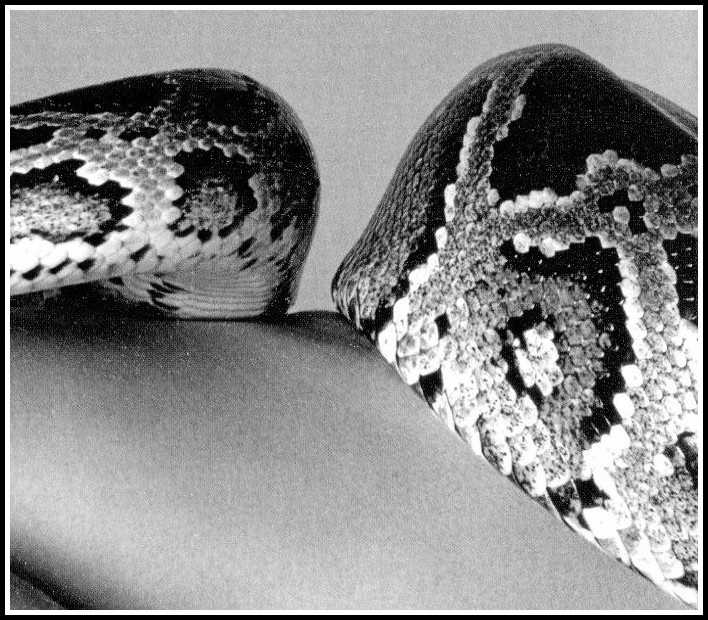
Photo: Richard Avedon (detail), Vogue
[Marietta and Sprague dancing to ‘Etienne’ by Guesch Patti] Egyptian cobra, blue coral snake; Malaysian pit viper, tropical rattlesnake: Lithe, supple, slinky, you celebrate the serpent, making your body an abode for the great regenerator. With every sensual entwinement you extol corporeal intelligence, with every coil you embrace carnal living. And thus all your extensions, flexions and rotations expunge convention from your flesh, and thus you accommodate the shadow that safeguards ambivalence. Vibrant notes, dense and dirty, sizzle off the guitar. Look! Your body is a rose, unfurling its lushness, flaunting its mystery. As my heart beats out the shape of my desire, my body petitions yours: Receive me in your secret cell, that from your attar my ardour may distil the unforgettable!
From Richard Jonathan, Mara, Marietta: A Love Story in 77 Bedrooms
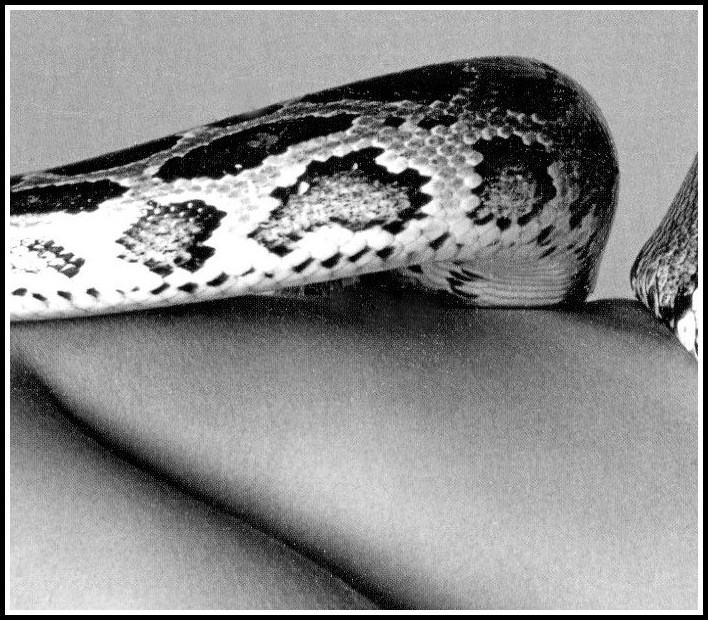
Photo: Richard Avedon (detail), Vogue
Look! The surface of the sand stirs, points of agitation interconnect. Whose hour has come round at last? Whose birth is at hand? Horned wedge of head, unblinking amber eye. (Amber—was that not the colour of her eyes?) Hark! Keeled scales rasp as a black flame spits: Through an aperture in the occlusion of his jaws, a viper tastes the evening air. Looping down the slope, he heads windward along the undulating sand.
̶ Stay, you who dwell in these empty lands!
̶ I am he who remains.
̶ Stay!
Gone. Vanished in the endless sea of sand.
From Richard Jonathan, Mara, Marietta: A Love Story in 77 Bedrooms
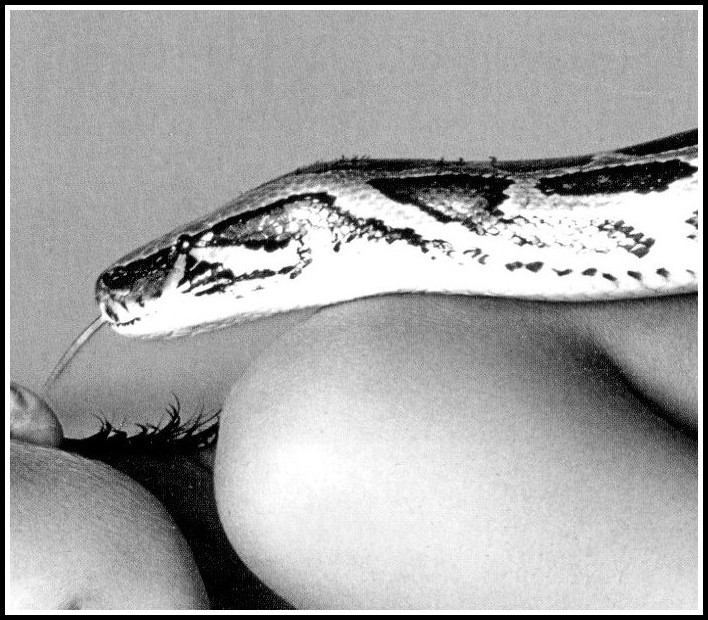
Photo: Richard Avedon (detail), Vogue
Heel-edge-ball-hallux, heel-edge-ball-hallux: Tethered to circular time, I thread my way through the eruption of life. Night lightning! Shaping the wanton world, quicksilver runs in the veins of black leaves; across dark stains deep cuts creep. Faeringa! Cold, cold, my blood turns cold! Is this the enemy of the sun? Look how he vanishes, vanishes only to reappear.
̶ Warden of secrets, storehouse of becoming, what part do you play in the order of things?
̶ Some say the enemy within, the essential other side; some say time’s motive power, the eternal homecoming.
̶ Homecoming! Oh relic of subterranean darkness, tell me: How much longer must I wander— No, don’t go!
Gone.
From Richard Jonathan, Mara, Marietta: A Love Story in 77 Bedrooms
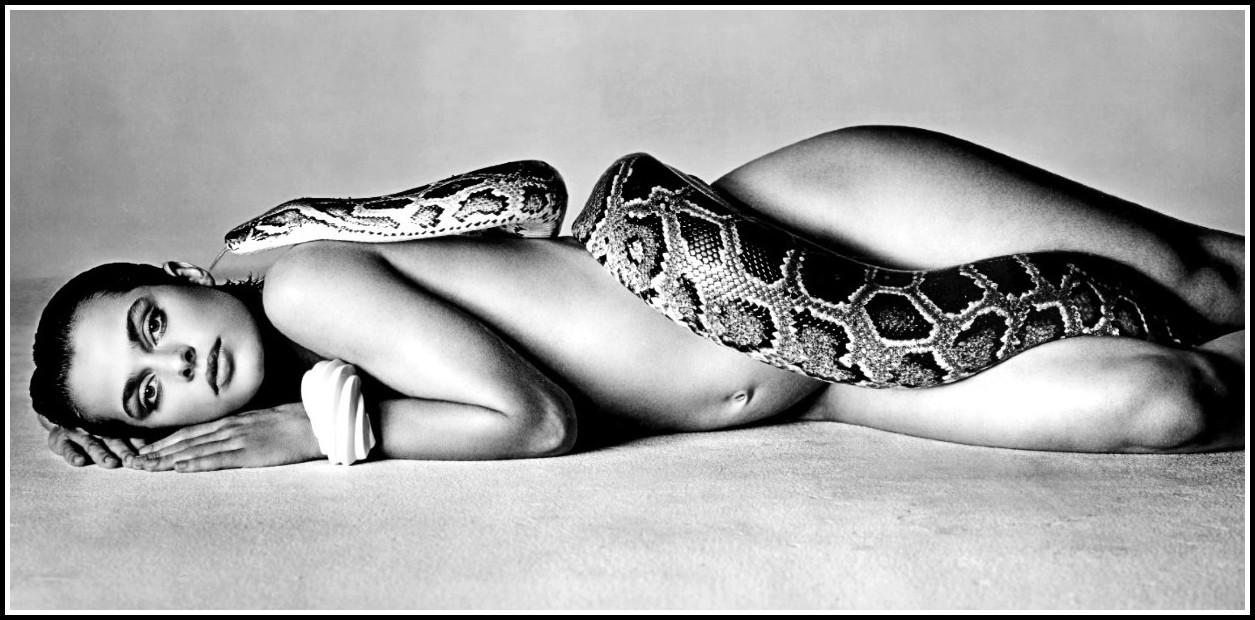
Photo: Richard Avedon, Vogue
ALL I WANT
Tonight I’m feeling like an animal
Tonight I’m howling inside
Tonight I’m feeling like an animal
Tonight I’m going wild
All I want
Is to be with you again
All I want
Is to hold you like a dog
Tonight I’m screaming like an animal
Tonight I’m losing control
Tonight I’m screaming like an animal
Tonight I’m getting so low
And all I want
Is to be with you again
Yeah all I want
Is to hold you like a dog
That’s all I want, that’s all I want
Just to hold you like a dog
That’s all I want, like a dog
That’s all I want, that’s all I want
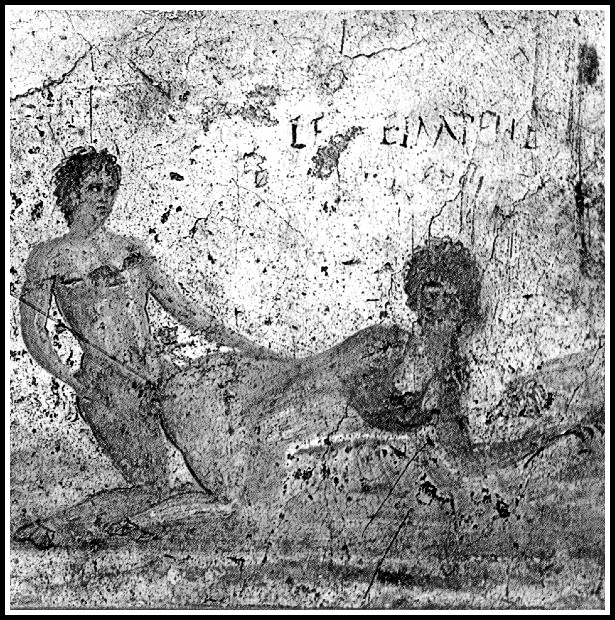
Pompeii
̶ Marietta?
̶ Hmmm?
̶ You can’t commit suicide with a safety blade.
̶ I know.
̶ That’s why I’m going to fuck you, differently.
̶ All right.
̶ I’m going to fuck you, hard.
̶ All right.
̶ I’m going to fuck you, until you come.
̶ All right. So get up and carry me to your bed!
Your body in my arms steeled my limbs, your gaze in my eyes melted them.
From Richard Jonathan, Mara, Marietta: A Love Story in 77 Bedrooms
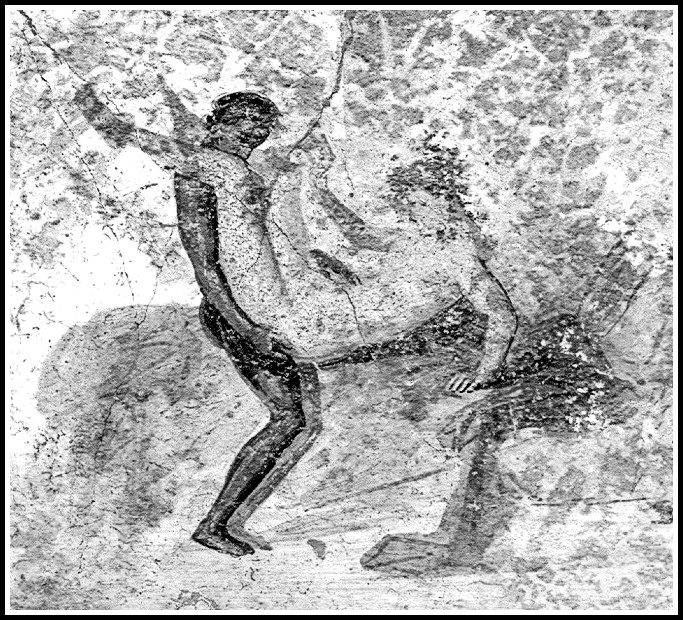
Pompeii
Face-down on the bed—two pillows under your pussy and one under your head—you whimper as I drive my ardour, deeper and deeper, into your forbidden aperture. Flowing like quicksilver through your hair, your chain-link collar glows as you turn your head from the rumble of the ‘Carpet of Memory’ to the silence of ‘The Black Prince’. Look! The black wall is infinite night, the mineral walls the desert: There, Marietta, lies our destination!
From Richard Jonathan, Mara, Marietta: A Love Story in 77 Bedrooms
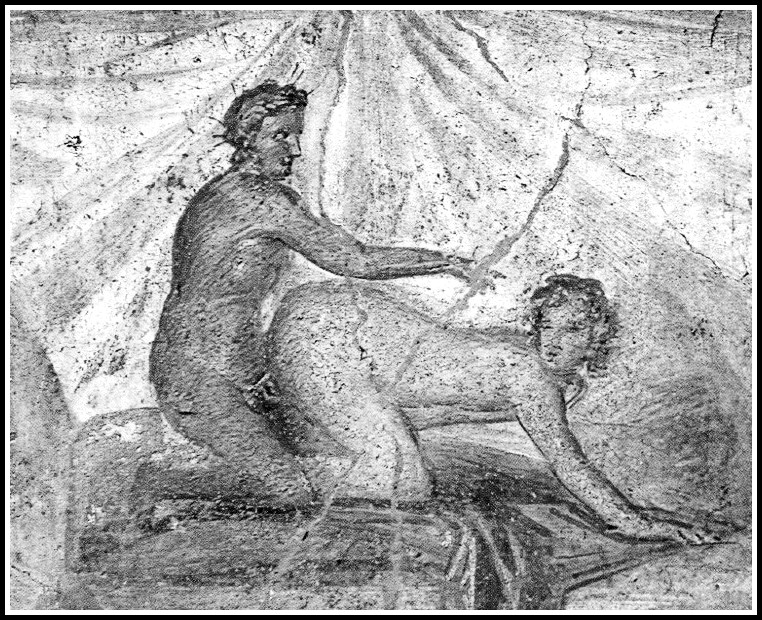
Pompeii
Deeper, more fluidly, I drive my demon into you, beyond lust, beyond reverence, into anguish. Here, in this occult space, what repels attracts; here, the limit to consciousness is the limit we must cross: Are you ready to bear responsibility? I feel the nervous spasms of your resistance, I feel the need for violation. Crack! The whip lands with gathered tails, producing not a sting but a deeper sensation. As heat billows from the point of impact, the next lash delivers a nine-point thrill, soon made one by another thudding blow. Restoring distinction, the man swings the whip hard and gives a snap of the wrist as the tails cross the skin: The sting sends the woman high onto her toes, gasping. Suspended in her sacred space, her calves taut in the grace of her soaring, she holds that position. On the forest floor, here a squirrel skin, turned inside out; there, the bitten-off shafts of wood-pigeon feathers: A fox has passed this way. The woman sighs as she descends to her heels; the man steps towards her. As he plants little kisses on her shoulder, she moans and widens her stance. He slides his hand between her legs, to her quim his fingers venture: Electric is their ambulation around her lightning rod. Holding the whip handle like a bit before her mouth, he offers it to her to bite as he slips a finger in: On the bed I feel you more relaxed, more ready to deliver yourself.
From Richard Jonathan, Mara, Marietta: A Love Story in 77 Bedrooms
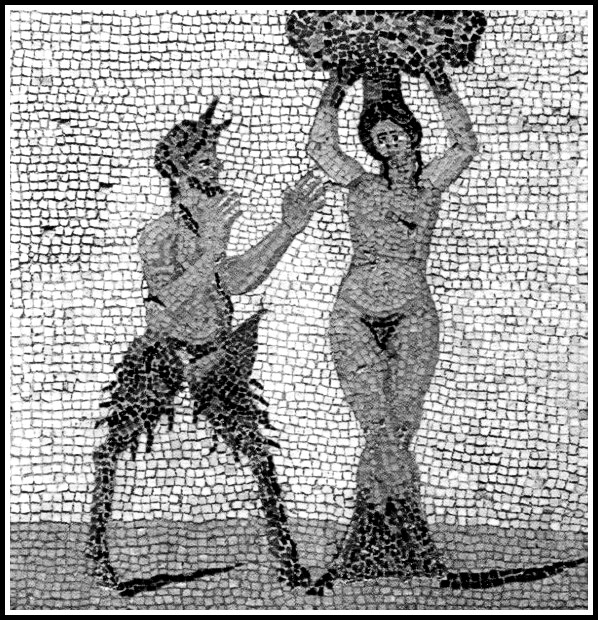
Pompeii
ONE MORE TIME
I’d love to touch the sky tonight
I’d love to touch the sky
So take me in your arms
And lift me like a child
And hold me up so high
And never let me go
Take me, take me in your arms tonight
Hold me, hold me up so high
And never let me down
Hold me, hold me up so high
To touch the sky just one more time
Take me in your arms tonight
Take me in your arms just one more time
Just one more time, just one more time
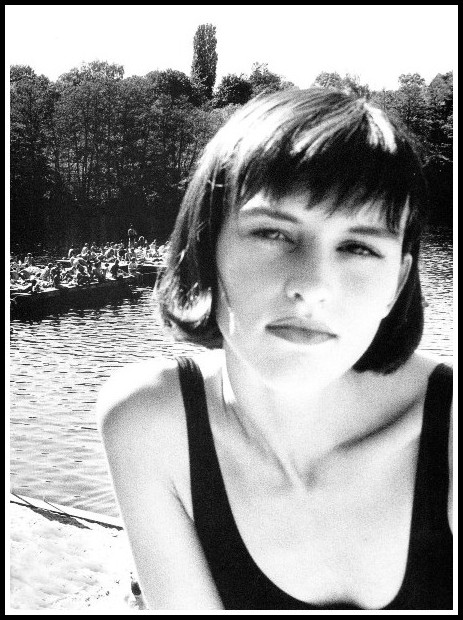
Photo: Helmut Newton
Child of woe, far to go, and now’s the time for loving and giving: Friday you returned from London. Over the phone, short and sweet, we agreed I’d call on you at eight on Saturday. When I said, ‘Sleep over at my place’, you said, ‘All right, I’ll pack an overnight bag’. How simple things can become: Three-and-half years had been a long wait.
From Richard Jonathan, Mara, Marietta: A Love Story in 77 Bedrooms

Photo: Helmut Newton
LIKE COCKATOOS
She walked out of her house and looked around
At all the gardens that looked back at her house
Like all the faces that quiz when you smile
And he was standing at the corner where the road turned dark
A part of shiny wet like blood the rain fell black down on the street
And kissed his feet she fell
Her head an inch away from heaven
And her face pressed tight
And all around the night sang out like cockatoos
‘There are a thousand things’ he said
‘I’ll never say those things to you again’
And turning on his heel he left a trace of bubbles
Bleeding in his stead and in her head
A picture of a boy who left her lonely in the rain
And all around the night sang out like cockatoos
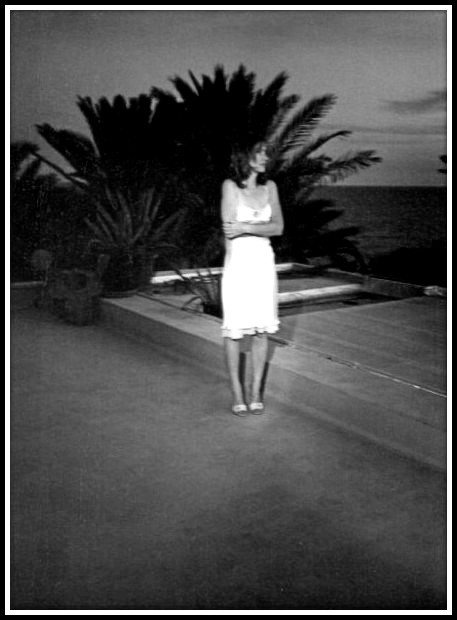
Photo: Antoine d’Agata
Over coffee she began rolling a cigarette. Observing the daylight soften her resurgent hurt, lending poignancy to her bitterness, I thought of Lucy Jordan: Besides being the same age, they had nothing in common, but somehow I had a vision—of Muriel or her mother, it was never clear—screaming on a rooftop in suburban America.
̶ You’ve got to take this opportunity to confront her, I said, if only to have no regrets later.
The bell jar of the air-conditioned nightmare was something we’d both experienced, and our shared receptivity to the spell of the poet and lucidity of the raconteur only reinforced our kinship.
̶ You think so? she asked. I think we’d just go round in circles. Nothing good would come of it.
I’d known first-hand such futility, so had no real counter-argument.
̶ Write to her, I suggested, try to get a dialogue going. You never know what it might lead to.
She puffed out a trio of smoke rings.
̶ I’ll think about it.
I got up and helped myself to an apple.
From Richard Jonathan, Mara, Marietta: A Love Story in 77 Bedrooms
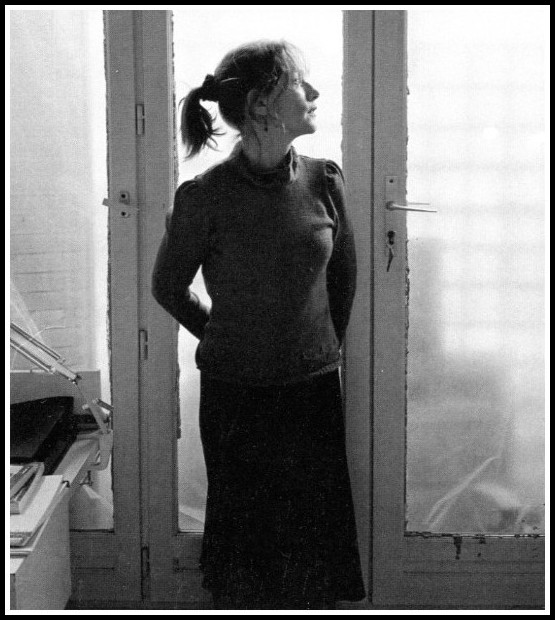
Photo: Elliott Erwitt
ROBERT SMITH & PATRICK WHITE
From Patrick White, The Cockatoos. The Text Publishing Company, Melbourne Australia, 2019
The cockatoos came at evening, the pair, stamping round the dish at the foot of the tree. Clumsy, beautiful creatures! On seeing them, her mouth fell open: their crests flicked like knives threatening intruders; then when the first seeds were cracked, the feathers so gently laid in a yellow wisp along the head.
She loved her birds. They were hers, surely? whoever had put out the seed. They were given to her as compensation.
In her anxiety, Olive Davoren twitched the blind behind which she was hiding in one of the front rooms, and the cockatoos took fright; they flew up into a tree. She was miserable, but could do nothing beyond wait and look.
She was sitting watching the empty garden, when there in the opposite bay of the other room, who was it half hidden behind the opposite brown blind?
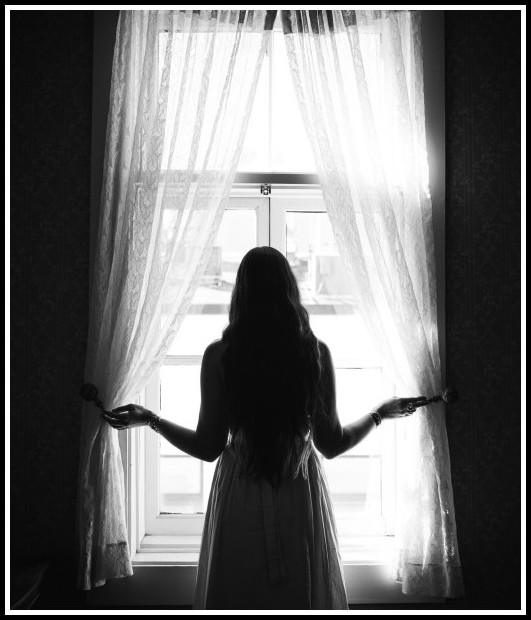
Photo: Jessie McCall
ICING SUGAR
You’re delicious, dreaming, slack-jawed, green-eyed
Rub my nose in icing sugar
Smooth as when this cold and deadly blade
Kisses the fruit so soft and gently breathing under your skin
I’ll empty you, I’ll empty you, as empty as a boy can be
As empty as a boy can be
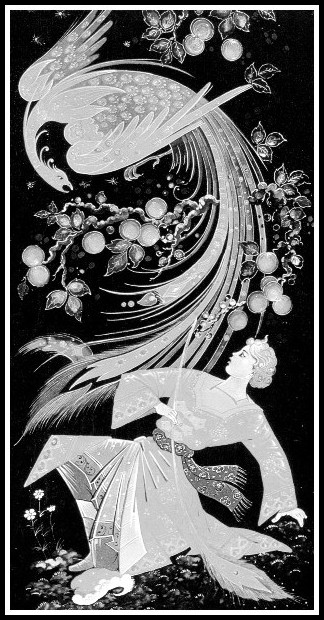
Belov, Firebird, 1982
̶ LSD? That’s my favourite drug!
Look at the painted nettle: What a clown of a coleus in its crazy colours, what a gladdening harlequin!
̶ It was mine too—for one holiday.
̶ With Nika?
̶ Yes. We dropped acid all summer long. The trips were wonderful, until I started bumming.
Your eyes shine and I see mine in them: What a larkish sprite in its robes of green, what a glorious sunset he swims in!
̶ It was the other way around for me. My first trips were bummers, and then the good ones came.
̶ It’s slippery, isn’t it, tripping?
̶ Yes, but real eye-opening!
̶ I’ll say!
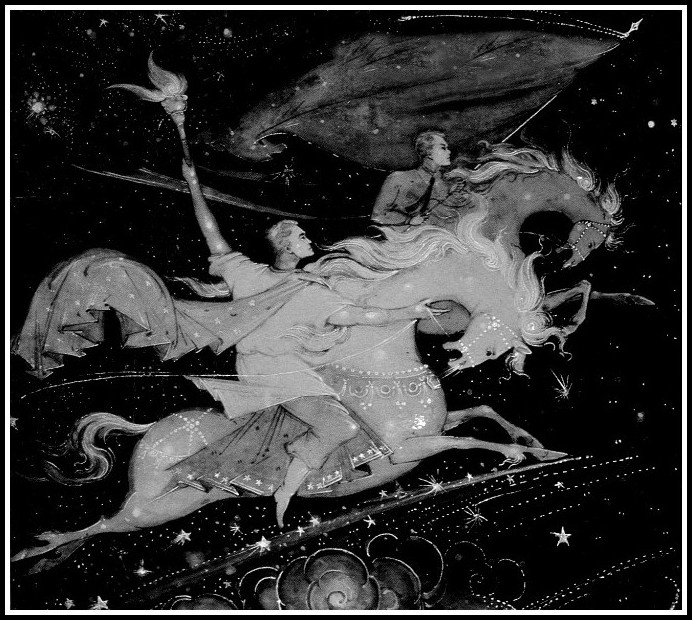
Belov, Space Brothers, 1980
̶ I like the the fact that you know there’s going to be some kind of story—a beginning, a middle and an end. You know it’s going to come on slowly, then intensify and peak, before gradually coming down.
̶ Yes, there’s that, but what I really loved is the way it makes everything become more fluid and provisional—there are no absolutes. The world really becomes relative, in Einstein’s sense.
̶ Indeed. I remember one trip where somebody told the time—five o’ clock or whatever—and I just burst out laughing, it was so irrelevant!
̶ Because you’re moving with time, not through it. And it’s the same for space—the way objects situate themselves in a field, isolating themselves in such original ways.
̶ Yes, I remember that very distinctly—the shifting focus, the clarity of textures, the way figure and ground reverse.
̶ And the colours!
You draw me to you and whisper in my ear:
̶ Only you make me see colours as I did then.
Oh batten on my blood, my beloved, don’t wait for night to enfold us!
From Richard Jonathan, Mara, Marietta: A Love Story in 77 Bedrooms
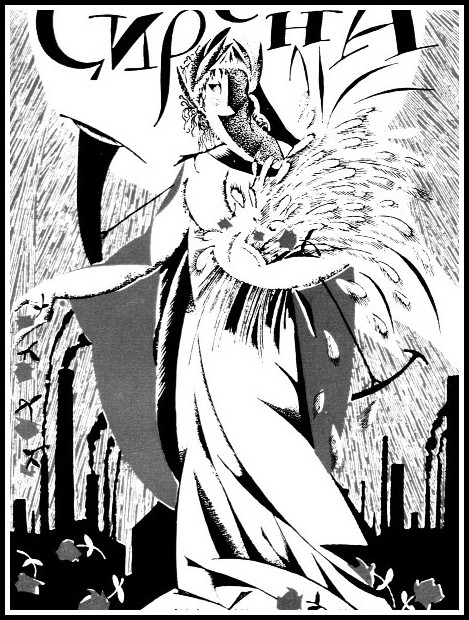
Soviet revolutionary poster, 1920 (detail)
A THOUSAND HOURS
For how much longer can I howl into this wind?
For how much longer can I cry like this?
A thousand wasted hours a day
Just to feel my heart for a second
A thousand hours just thrown away
Just to feel my heart for a second
For how much longer can I howl into this wind?
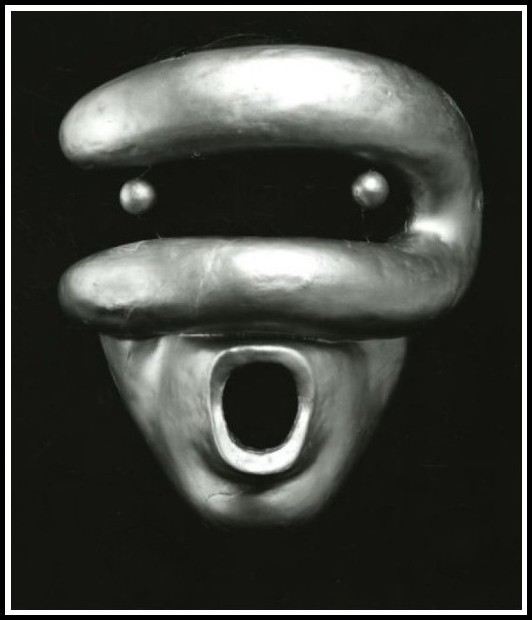
Isamu Noguchi, Mask of Orpheus, 1948
Precious one, today is your birthday and I am all undone. Why can’t I accept that without you my dwelling place is the rain, the stars and the river, and the wide open spaces the wind blows through? You gave me all your love, you filled my spine with memories: true. But ever since you left me I’ve been living unsheltered, defenceless against the wind that blows your absence through my bones. How long can this missing you go on? If no other lover can make up for your being gone, neither can my scribbling. Because I know I will never take shelter, I know it will never end. Because I know your memory keeps me alive, I know I am condemned. To what? To missing you till my bones ache, to being a mourner at my own wake.
From Richard Jonathan, Mara, Marietta: A Love Story in 77 Bedrooms
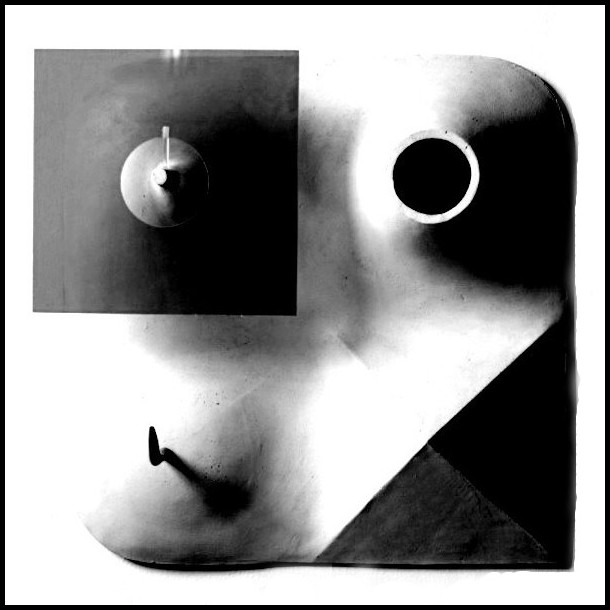
Isamu Noguchi, My Arizona, 1943
SHIVER AND SHAKE
You’re just a waste of time
You’re just a babbling face
You’re just three sick holes that run like sores
You’re a fucking waste
You’re like a slug on a girl
You’re useless and ugly, useless and ugly
I shiver and shake
When I think of how you make me hate
I want to smash you to pieces
I want to smash you up and screaming
I want to smash you helpless, down on the floor
Smash you until you’re not here anymore
I shiver and shake, I shiver and shake
Shiver and shake, shiver and shake, shiver and shake

Gola or Mende helmet mask | Musée Barbier-Mueller
Her mother worked her way up from the shop floor to become a manager at the ball-bearing factory; her father was an alcoholic who, when Siri was thirteen, drank himself into a stupor from which he never recovered.
̶ He put my mum through hell. She never stopped loving him, and that only made things worse.
̶ And you?
̶ I had no trouble hating him. Things were clear between us. Though I did lose a screw when he died. If it wasn’t for singing, I’d be dead too, no doubt.
̶ Singing saved you?
̶ Yes. Before Dziga Vertov I was in a punk band. Allowed me to flush out all my feelings. Then I read L’Étranger and decided there’s no future in being a punk.
We both laugh. She bites my earlobe and does the Gopala-girl.
From Richard Jonathan, Mara, Marietta: A Love Story in 77 Bedrooms
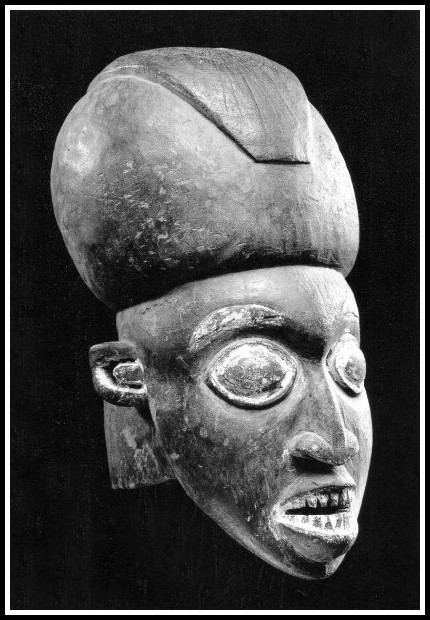
Babanki helmet mask | Musée Barbier-Mueller
ROBERT SMITH & LOL TOLHURST
From Christian Gerard, The Cure FAQ: All That’s Left to Know About the Most Heartbreakingly Excellent Rock Band the World Has Ever Known (Backbeat Books, 15 Oct. 2021) pp 201-202
Every once in awhile, like on ‘Give Me It’ from The Top and ‘The Scream’ from 4:13 Dream, the Cure exhibits manic paroxysms of loathing and disgust set to raging guitars, lunatic beats, and Robert Smith howling like a madman. ‘Shiver and Shake’ is that moment on Kiss Me when everything goes haywire, a runaway train careening down a mountainside, awaiting the cataclysmic crash that surely awaits it when the wheels go off entirely. If it sounds particularly convincing, there’s a good reason: the song is a hate note two Lol Tolhurst, who by this time was making no musical contributions whatsoever. During Smith’s legal battle with Tolhurst in 1994, the singer explained in a written statement to the court that he had written ‘Shiver and Shake’ about his former childhood friend and made him stand in front of him when he recorded the vocals so that he could sing it with more feeling.
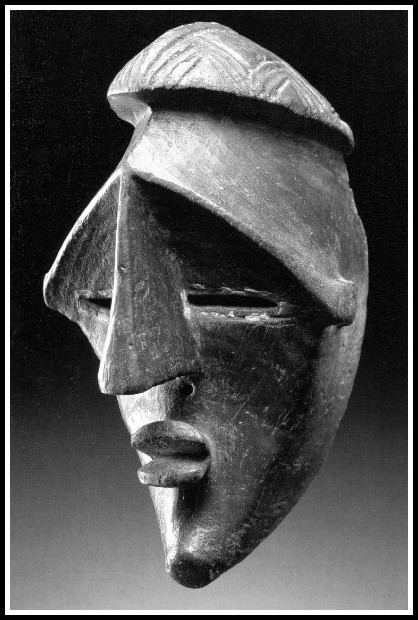
Luluwa face mask | Musée Barbier-Mueller
FIGHT
Sometimes there’s nothing to feel
Sometimes there’s nothing to hold
Sometimes there’s no time to run away
Sometimes you just feel so old
The times it hurts when you cry
The times it hurts just to breathe
And then it seems like there’s no-one left
And all you want is to sleep
Fight fight fight— just push it away
Fight fight fight—just push until it breaks
Fight fight fight—don’t cry at the pain
Fight fight fight—or watch yourself burn again
Fight fight fight—don’t howl like a dog
Fight fight fight—just fill up the sky
Fight fight fight—fight till you drop
Fight fight fight—and never never, never
Never, never, never stop
Fight fight fight
So when the hurting starts
And when the nightmares begin
Remember you can fill up the sky
You don’t have to give in, you don’t have to give in
Never give in, never give in, never give in
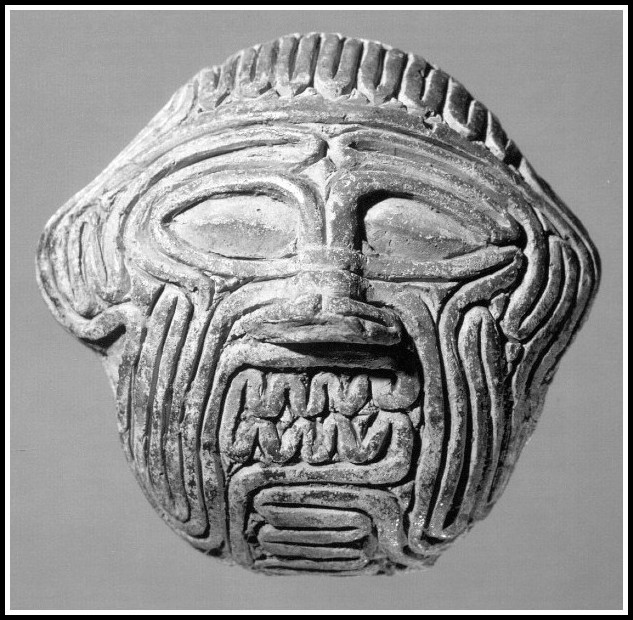
Mask of Humbaba | British Museum
The terms of my death—what would it mean for me to choose them? I don’t remember my expulsion from the womb, I can’t recall my first cry, but I do remember struggling for air underneath the ice. And how time stood still. One day the ice began to crack; time started to flow. I struggled to insert myself into the turning world. Instinctively, the pain of breathing in the open air made me reach out for a lifeline: The only lifeline I could ever get a grip on was always a girl. Slowly I learned to walk on the open earth. I learned the language of animals, I shared the life of plants. But with humans I felt foreign: I had remained too long, too deep, underneath the ice. Something in me had been irreparably damaged: I’d always be a stranger. Still I reached out, still I tried to get a foothold in the world. With each successive girl I slipped less. But I kept slipping. And then I met you. You taught me to breathe. You taught me to walk. You gave me my body and you gave me yours. You loved me as I am and thus, before you left me, you fulfilled the terms of my death. Every word I’ve written is a celebration of your freedom. Every word I’ve written is an assumption of my death. But that is not all: Every word I’ve written is my epitaph. I will keep my rendezvous with the river. I have no desire to linger. I have lived enough.
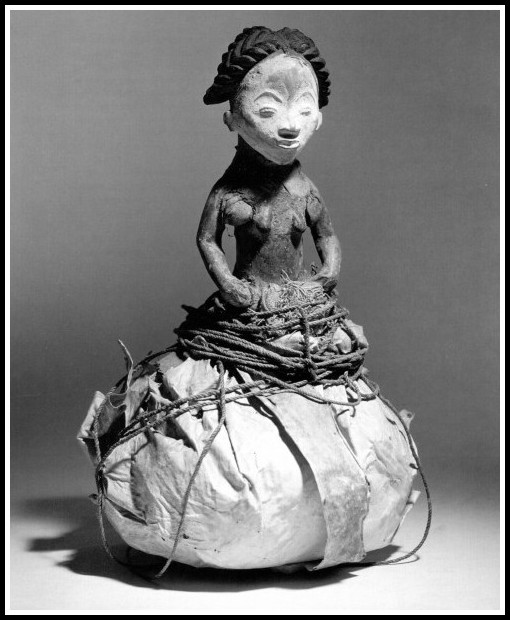
Reliquary with female guardian | Musée de l’Homme, Paris
MARA, MARIETTA: A LOVE STORY IN 77 BEDROOMS
A literary novel by Richard Jonathan
By Richard Jonathan | © Mara Marietta Culture Blog, 2021| All rights reserved

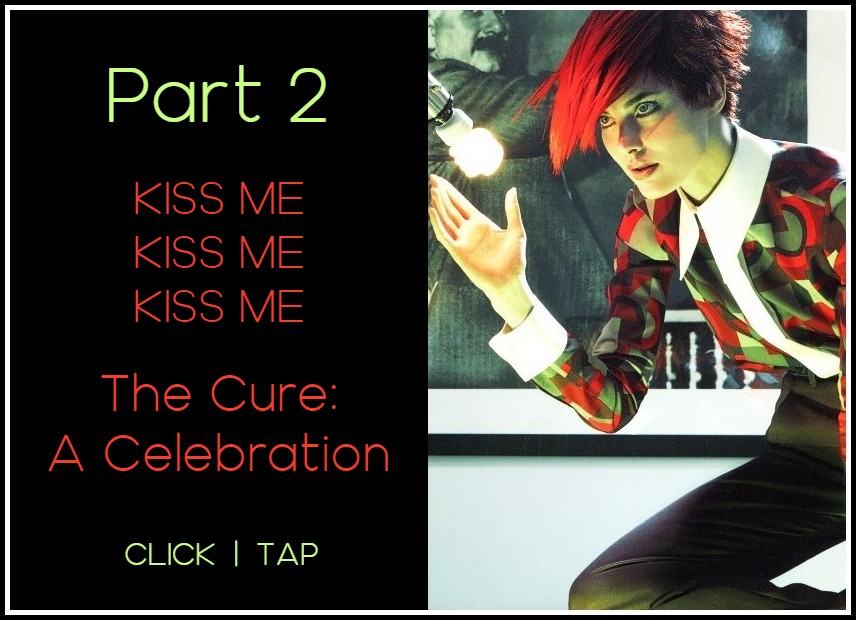
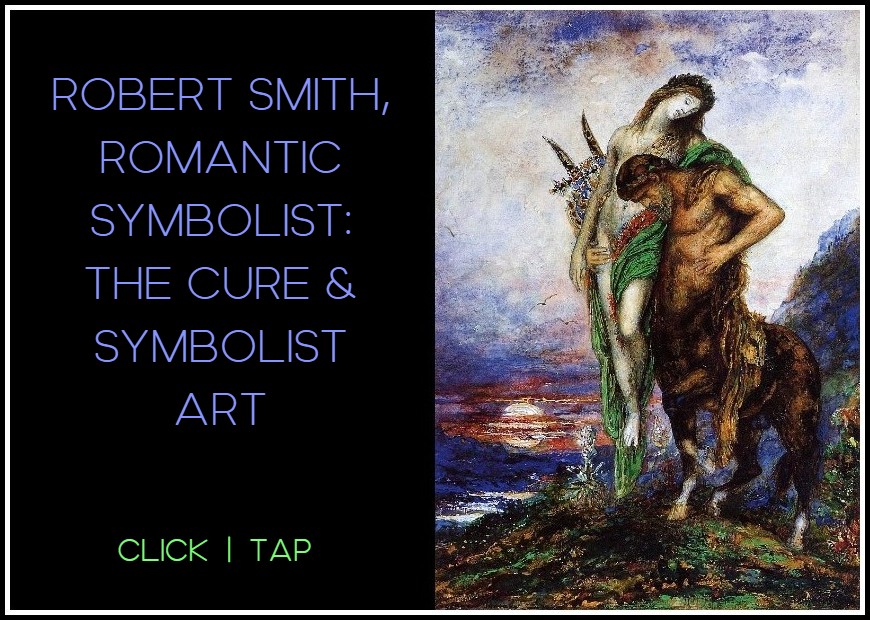
Comments